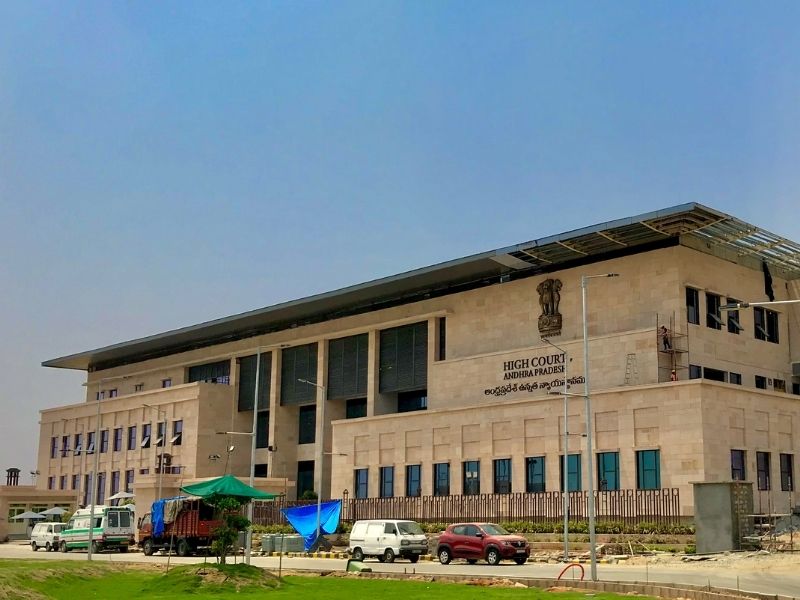-Dipta Joshi
The Andhra Pradesh High Court has struck down the state government’s order 53 and 54 (dated August 25) that limited tuition fees chargeable by the state’s private unaided schools to a maximum of Rs 18,000 only for three consecutive academic years effective academic year 2021-22. The order brings relief to 5000 private schools across the state who have been asking the government to rescind the draconian order that has resulted in school managements bleeding financially as parents refused to pay beyond the state prescribed fees.
Exercising its powers under section 7 of the Andhra Pradesh Educational Institutions (Regulation of Admission and Prohibition of Capitation Fee) Act, 1983, the state’s YSRC government led by chief minister, Y. S Jagan notified the fee structure for the 15,000 nursery to class X private unaided schools for the block period from 2021-2022, 2022-2023 and 2023-2024. The second order 54, lists similar restrictions for the state’s institutes running intermediate or junior colleges (classes XI and XII). Segregating schools under three different categories based on their location within panchayats, smaller municipalities or within municipal corporations, the order has been applicable irrespective of the school’s facilities or its affiliation to state, national or international boards.
The Independent School Management’s Association of Andhra Pradesh (ISMA,AP), Andhra Pradesh Unaided Schools Management Association (APUSMA) and the East Godavari District Private Schools Association had challenged the government’s order. Combined the three associations have 10,000 plus school managements as their members. Striking off the government’s order, Justice U. Durga Prasad Rao noted the current notification having several lapses and asked the ruling YSR Congress party government to come up with what would be “a more reasonable fee structure” taking into consideration school management’s proposals too.
The Andhra Pradesh School Education Regulatory and Monitoring Commission (APSERMC) recommended order allows schools operating within the panchayat areas to charge a maximum of Rs10,000 per annum (p.a) from their primary (nursery to class V) students and Rs 12,000 p. a from their while secondary section students (classes VI-X). The maximum collectible fees in smaller municipal areas is Rs 11,000 for the primary section and Rs 15,000 p. a. for the secondary section. Students enrolled in schools within the bigger municipal corporations pay a maximum of Rs 12,000 p.a in the primary section and Rs 18,000 p.a. in the secondary section. Order 54 mandates intermediate or junior colleges (classes XI and XII) students to pay a maximum of Rs 15,000 p.a. for colleges within gram panchayats, Rs 17,500 p.a. for those within municipalities and Rs 20,000 p. a. for those within municipal corporations.
The order states the said fee structure was arrived at only after interacting with all the stakeholders – parents, school managements and students. The order further states the fees are inclusive of tuition, registration, admission, examination, laboratory, sports, computers, library, extracurricular activities, study tours charges, students’ welfare funds and even student held care schemes. The only other charges that students would thus need to pay post the prescribed fees, would be the transportation and residential boarding charges, if the student opts for those services.
“The judgement has come after a delay of three months but we knew it would be in our favour because the government’s order was not reasonable and not fair to private school managements. It did not take into consideration the ground realities. No two schools are the same and schools cannot be grouped into such categories. The government’s role is to monitor and regulate schools but not indulge in dictating the fees structure to schools. There are several judgments that have upheld the private school’s right to earn a surplus of 15 percent profit and use it for further development. While the government needs to check rampant profiteering, its current order has led to many schools on the brink of closure as they face an unprecedented financial crisis,” says Sreekanth Babu, president, ISMA, AP.
The government’s restrictive order impacted the state’s mid-segment schools (annual tuition fees of Rs 30,000-50,000) the most as in some schools, 50 percent of parents stopped paying the fees altogether following the government’s order. As many as 2000 schools affiliated to the state and CBSE are said to be facing a dire financial crunch and are unable to pay their staff including teachers. Many schools have been unable to pay the monthly instalments towards bank loans for school infrastructure. School managements have also been complaining of continued harassment from education department officials threatening derecognition of the school if found to be charging fees over the state prescribed fee structure.
Also read:
SC stays Rajasthan HC order; allows private schools to collect 100% fees
Karnataka: Private schools threaten to go on strike if fee order not revoked
